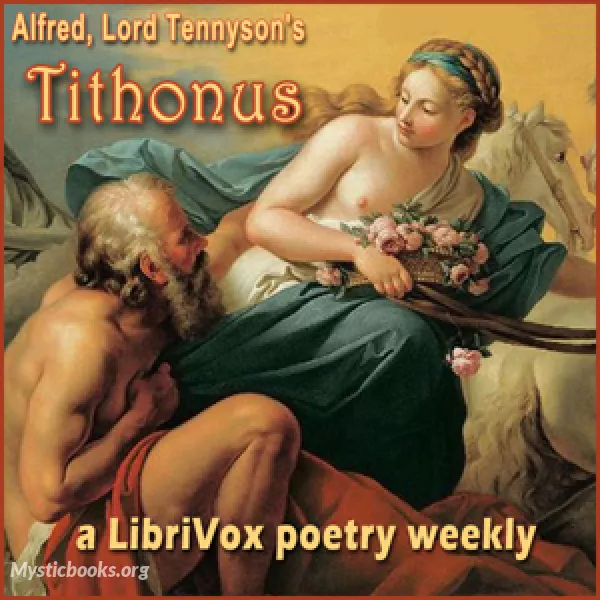
Tithonus
'Tithonus' Summary
In the realm of Greek mythology, Tithonus, a Trojan prince, falls deeply in love with Eos, the goddess of the dawn. Their love is passionate and enduring, and Tithonus, captivated by Eos's beauty and eternal youth, yearns to be with her forever. In a gesture of love and devotion, Eos appeals to Zeus, the king of gods, to grant Tithonus immortality. Zeus, moved by their love, agrees to her request, bestowing upon Tithonus the gift of eternal life.
However, in a tragic oversight, Eos fails to ask for eternal youth along with immortality. As a result, Tithonus is condemned to an existence where he grows old and decrepit while Eos remains forever youthful and radiant. Confined to the realm of dawn, Tithonus watches helplessly as the world awakens to the vibrant hues of morning, while he remains trapped in the shadows of his own mortality.
Alfred, Lord Tennyson's Tithonus captures the poignant tragedy of this immortal prince, as he laments his waning strength, fading beauty, and the unbearable burden of eternal aging. His once-handsome physique now resembles a "gray shadow," his voice a mere "whisper," and his touch a "cold and clammy slime." The once-passionate lover is now a pathetic figure, trapped in a body that is slowly decaying while his mind remains painfully aware of its deterioration.
The poem explores the paradoxical nature of immortality, where the very essence of life, the ability to grow and change, is stripped away, leaving behind a hollow existence devoid of joy or fulfillment. Tithonus yearns for the solace of death, the release from his unending torment, but the gift of immortality ensures his continued existence. His anguished cries, echoing through the ages, serve as a stark reminder of the fragility of human life and the bittersweet beauty of mortality.
Tennyson's masterful use of imagery and symbolism paints a vivid picture of Tithonus's deteriorating state, contrasting the vibrant beauty of dawn with the decaying figure of the immortal prince. The poem's haunting rhythm and melancholic tone evoke a sense of empathy and compassion for Tithonus, as he grapples with the consequences of his immortal existence.
Tithonus stands as a timeless masterpiece, a profound meditation on the human condition, and a poignant reminder of the delicate balance between life and death. It is a poem that will linger in the reader's mind long after the final verse, prompting reflection on the fleeting nature of existence and the enduring power of love. In a world where eternal youth is often sought after, Tennyson's poem serves as a cautionary tale, reminding us that immortality, without the accompanying qualities of growth and change, can be a curse rather than a blessing.
Book Details
Language
EnglishOriginal Language
EnglishPublished In
1860Genre/Category
Tags/Keywords
Authors

Lord Alfred Tennyson
United Kingdom
Alfred Tennyson, 1st Baron Tennyson was a British poet. He was the Poet Laureate during much of Queen Victoria's reign and remains one of the most popular British poets. In 1829, Tennyson was awarded...
Books by Lord Alfred TennysonDownload eBooks
Listen/Download Audiobook
- Select Speed
Related books

Anthology of Magazine Verse for 1914 by William Stanley Braithwaite
Step into the poetic wonderland of 1914 with the Anthology of Magazine Verse, curated by the masterful wordsmith, William Stanley Braithwaite. Delve i...
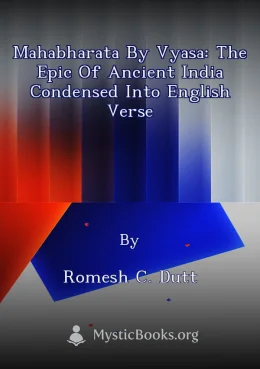
Mahabharata by Vyasa: The epic of ancient India condensed into English verse by Romesh C. Dutt
This book is an English verse adaptation of the Mahabharata, one of India's two great epic poems. The original Sanskrit epic, attributed to the sage V...

Any Woman To A Soldier by Grace Ellery Channing
Amidst the clamor of war and the heart-wrenching farewells, Grace Ellery Channing's "Any Woman to a Soldier" stands as a poignant testament to love's...
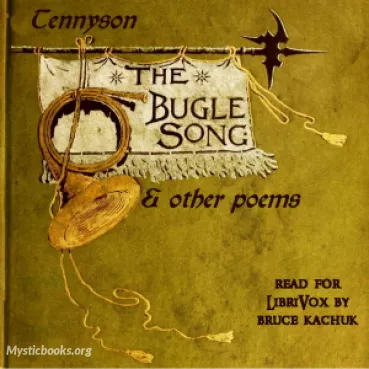
The Bugle Song and Other Poems by Various
This anthology has remained a beloved classic among poetry enthusiasts and literary scholars alike. Written by multiple poets, including well-known n...

Joy by Clarissa Scott Delany
It is a celebration of the power of joy and the ways in which it can transform our lives. Written in the early 20th century, "Joy" is a powerful refl...

Poems Every Child Should Know by Various
This anthology of poetry, published in 1904, contains such favorites as The Raven, My Shadow, and The Village Blacksmith, as well as many lovely poems...
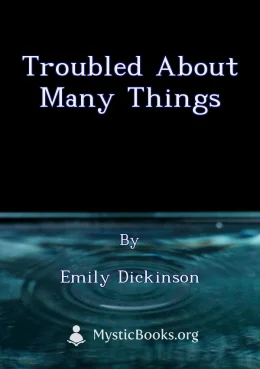
Troubled About Many Things by Emily Dickinson
This collection of poems, written by Emily Dickinson, reflects her introspective nature and deep contemplation of life, death, and the human condition...
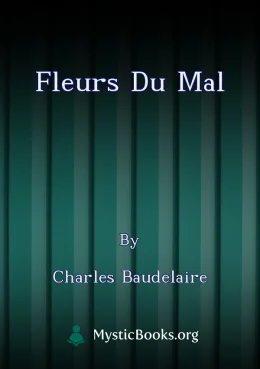
fleurs du mal by Charles Baudelaire
Les Fleurs du Mal is a collection of poems by Charles Baudelaire that was first published in 1857. The poems are known for their dark and often distur...

America the Beautiful by Katharine Lee Bates
The poem was later set to music and has become one of the most popular patriotic songs in the United States. The poem celebrates the natural beauty of...

Sonette by Edmund Dorer
Edmund Dorer's "Sonette" is a collection of fourteen sonnets exploring themes of nature, philosophical musings, and the complexities of love. The poem...
Reviews for Tithonus
No reviews posted or approved, yet...